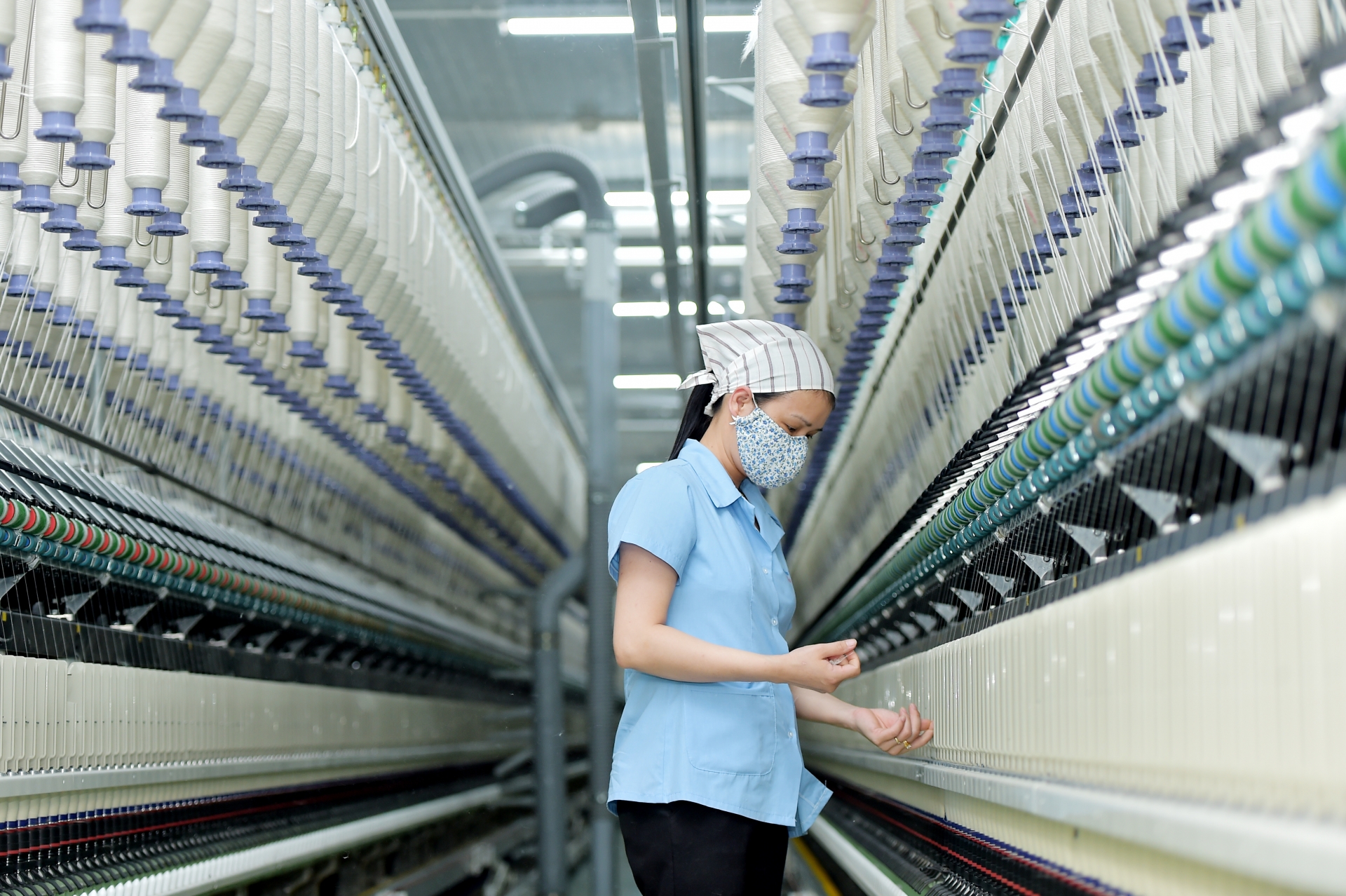M&A appetite robust in textile and garment sector
 |
| Short- and long-term weaknesses of painting the M&A target on select Vietnamese textile and garment producers |
Nguyen Thi Tuyet Mai, general secretary of the Vietnam Textile and Apparel Association, said that foreign investors are purchasing shares and making capital contributions into Vietnamese textile companies to capitalise on the global textile and garment market. Given the impact of COVID-19 and their long-standing weaknesses, several Vietnamese textile enterprises are struggling, setting them up as potential M&A targets.
At present, Vietnam is home to 7,000 textile and garment companies. Over 80 per cent of whom are small- and medium-sized enterprises limited by a lack of capital, technology, skilled workforce and good governance. Meanwhile, foreign-invested companies are equipped with modern technology, experts, strong financial capability, and have a stable market for their projects.
Meanwhile, Vu Kim Hanh, chairwoman of the Vietnam High-Quality Goods Association said that Vietnamese textile and garment firms have yet to catch up with the digitalisation trend. Many are confused about digital marketing and online sale. Due to their small scale, local firms cannot fulfil large orders. They remain weak in design and branding, making it difficult to increase added value and raise the competitiveness in the market.
She expected that the participation of strategic investors via M&A will help Vietnamese firms address the challenges and scale up in the future.
E-Land, Korea's first and largest integrated fashion and retail company, has been a strategic partner of Thanh Cong Textile Garment Investment Trading JSC for over the past 10 years by holding a 30 per cent stake at the local firm.
E-Land has steadily increased its ownership to 43.26 per cent to become the largest foreign strategic investor in Thanh Cong Textile, making significant contributions to improving corporate restructuring and governance. Thanh Cong Textile has seen its after-tax profit growing six-fold since E-Land’s investment.
In 2018, Japanese trading house Itochu has increased its stakes in Vietnam National Textile and Garment Group (Vinatex) to nearly 15 per cent by investing $46.9 million with an aim to turn the country into a textile export hub for Europe. Itochu is now the second-largest stakeholder in Vinatex after the Vietnamese government.
Itochu exports a little over ¥60 billion ($553 million) worth of apparel from Vietnam a year, half of which is produced by Vinatex. The company aims to raise outsourced production and exports to ¥100 billion ($922 million) by 2021.
The outlook for Vietnam’s textile and garment exports is brighter in 2021 as the EU-Vietnam Free Trade Agreement has taken effect. There is also a higher demand for "Made in Vietnam" fabrics as big brands are increasingly sourcing fabrics from Vietnam than China. The fabric prices are steadily increasing this year, improving the profit margins of local firms.
In the past two years, there have not been so many M&A deals in the textile and garment industry. The majority of buyers scooped up around 10-15 per cent stake in Vietnamese companies as an investment rather than holding a controlling stake.
What the stars mean:
★ Poor ★ ★ Promising ★★★ Good ★★★★ Very good ★★★★★ Exceptional
Related Contents
Latest News
More News
- VNPAY and NAPAS deepen cooperation on digital payments (February 11, 2026 | 18:21)
- Vietnam financial markets on the rise amid tailwinds (February 11, 2026 | 11:41)
- New tax incentives to benefit startups and SMEs (February 09, 2026 | 17:27)
- VIFC launches aviation finance hub to tap regional market growth (February 06, 2026 | 13:27)
- Vietnam records solid FDI performance in January (February 05, 2026 | 17:11)
- Manufacturing growth remains solid in early 2026 (February 02, 2026 | 15:28)
- EU and Vietnam elevate relations to a comprehensive strategic partnership (January 29, 2026 | 15:22)
- Vietnam to lead trade growth in ASEAN (January 29, 2026 | 15:08)
- Japanese business outlook in Vietnam turns more optimistic (January 28, 2026 | 09:54)
- Foreign leaders extend congratulations to Party General Secretary To Lam (January 25, 2026 | 10:01)

 Tag:
Tag:




















 Mobile Version
Mobile Version